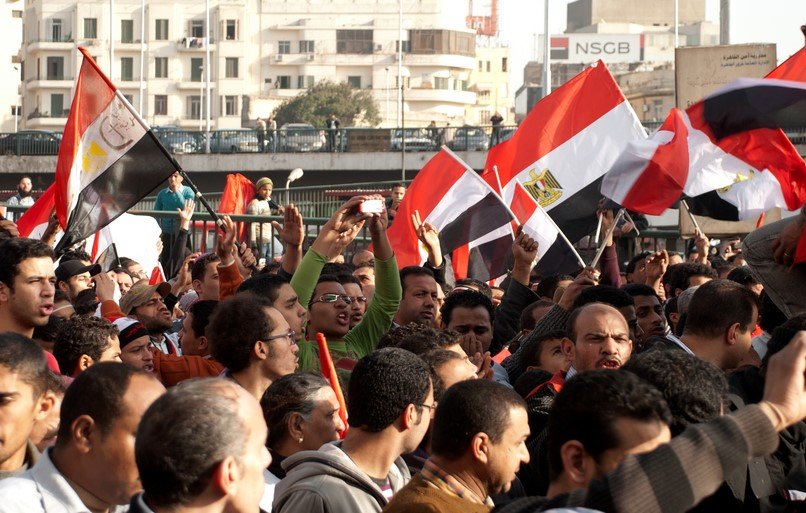Critics warn new judicial reforms could cement unchecked police power and erode fair trial guarantees
Egypt’s push to rewrite its criminal procedure laws is triggering serious concerns among rights advocates, who say the proposed reforms may do more harm than good—cementing emergency-style policing and weakening the already fragile right to a fair trial.
The bill, which has sailed through parliament and now sits on President Abdel Fattah al-Sisi’s desk, is being advertised by officials as a bold modernization effort. But behind the legal jargon lies a worrying reality, critics argue, that could give prosecutors and police sweeping unchecked powers.
Government sells it as a “revolution” in justice
Foreign Minister Badr Abdelatty didn’t mince words at the UN Human Rights Council earlier this month. “This is a legislative revolution,” he said, describing the draft law as a comprehensive overhaul of Egypt’s outdated 1950s-era code.
Supporters of the law inside Egypt’s parliament have echoed that optimism. Ihab al-Tamawy, who chaired the drafting subcommittee, insisted the changes would “rein in” Egypt’s problematic pretrial detention policies—long criticized for jailing defendants without trial for months, even years.
He also noted new measures meant to clarify the roles of public prosecutors and protect civil rights during police investigations.
Still, not everyone is buying it.
Rights groups say new rules could legalize abuse
Human rights organizations say the bill offers little actual protection and instead risks baking in existing abuses under the cover of legal reform.
One key issue? Expanded powers for public prosecutors to impose travel bans without a court order. The draft text allows prosecutors to block people from leaving the country in vaguely defined “emergency” situations.

Another worrying clause gives police the authority to enter private homes without a warrant in cases of “distress” or “danger”—terms that are left deliberately vague in the current draft.
“These aren’t reforms,” one Cairo-based civil liberties lawyer said, requesting anonymity out of fear of reprisal. “They’re a formalization of the state of exception we’ve lived under for the past decade.”
And then there’s the question of defense rights. Critics say the bill sidelines lawyers further by tightening pretrial timelines, cutting short opportunities to challenge evidence or cross-examine witnesses.
The bigger picture: Egypt’s justice system under Sisi
Since coming to power in 2014, President Sisi has presided over one of the harshest crackdowns in Egypt’s modern history. Tens of thousands of people—activists, journalists, political opponents—have been jailed, many under the banner of “national security.”
The courts, once seen as independent, have increasingly become tools of state control. Quick trials, mass death sentences, and prolonged pretrial detentions have become disturbingly routine.
A 2024 report by the World Justice Project ranked Egypt 135th out of 142 countries in its Rule of Law Index. That puts Egypt behind Russia, Venezuela, and Myanmar—nations not exactly known for legal fairness.
One Egyptian NGO, the Egyptian Commission for Rights and Freedoms (ECRF), says that in 2023 alone, over 4,000 individuals were held in pretrial detention beyond legal limits.
That kind of context makes the current bill’s promises hard to believe.
What the new law actually changes
Here’s a closer look at what’s included in the legislation—at least what’s publicly known so far:
-
Public prosecutors can impose travel bans “in emergency cases” without court approval.
-
Police are allowed to enter private homes without a warrant during “cases of distress or danger.”
-
Pretrial detention reviews are supposed to be more frequent, but without real judicial independence, their effectiveness is doubtful.
-
Defense lawyers will have shorter windows to review case files or challenge evidence.
One Cairo University law professor summed it up like this: “It’s dressed up in the language of reform, but the substance is just more control.”
Sisi’s approval is expected, but not guaranteed
The law still requires presidential sign-off. While it’s rare for President Sisi to veto bills once they pass parliament, some observers note that international pressure could still play a role—especially with Egypt facing criticism over its human rights record ahead of key investment forums and international summits.
There’s also some grumbling within Egypt’s legal community. Quietly, a few judges and prosecutors have expressed concern that the new code could backfire—exposing them to more public scrutiny or weakening legal integrity even further.
Still, the smart money says the law will be signed and implemented within weeks.
Legal experts warn of consequences down the road
If the law goes through as written, what could happen?
Some predict an uptick in arbitrary arrests, as the vague language around “danger” or “distress” allows security services broad leeway to act without oversight.
Others worry about the erosion of basic procedural safeguards that keep authoritarian power in check, however weakly.
“This law could become the playbook for repression,” said a European diplomat based in Cairo, speaking anonymously. “It creates the illusion of reform, but builds on a deeply broken foundation.”
Here’s how Egypt stacks up globally on rule-of-law and judicial independence:
| Country | Rule of Law Rank (WJP 2024) | Pretrial Detention Criticisms |
|---|---|---|
| Egypt | 135 / 142 | Excessive duration, lack of review |
| Venezuela | 140 / 142 | Arbitrary arrests, poor conditions |
| Myanmar | 138 / 142 | Military-controlled judiciary |
| Russia | 134 / 142 | Political cases, no fair trial guarantees |
It’s a tough neighborhood to be grouped into, and Egypt’s reform bill—despite the rhetoric—may keep it there.
International reaction so far? Muted, but watching
So far, international human rights bodies like Amnesty International and Human Rights Watch have issued cautious statements. They’ve urged Egypt to revise the draft law to include stronger protections for defendants and clearer oversight mechanisms.
The United States and EU diplomats have reportedly raised the issue privately with Egyptian officials, but no major public condemnation has emerged. Not yet.
One French legal observer based in Alexandria noted the strategic silence. “Egypt is too important geopolitically,” she said. “No one wants to rock the boat—until it starts sinking.”
